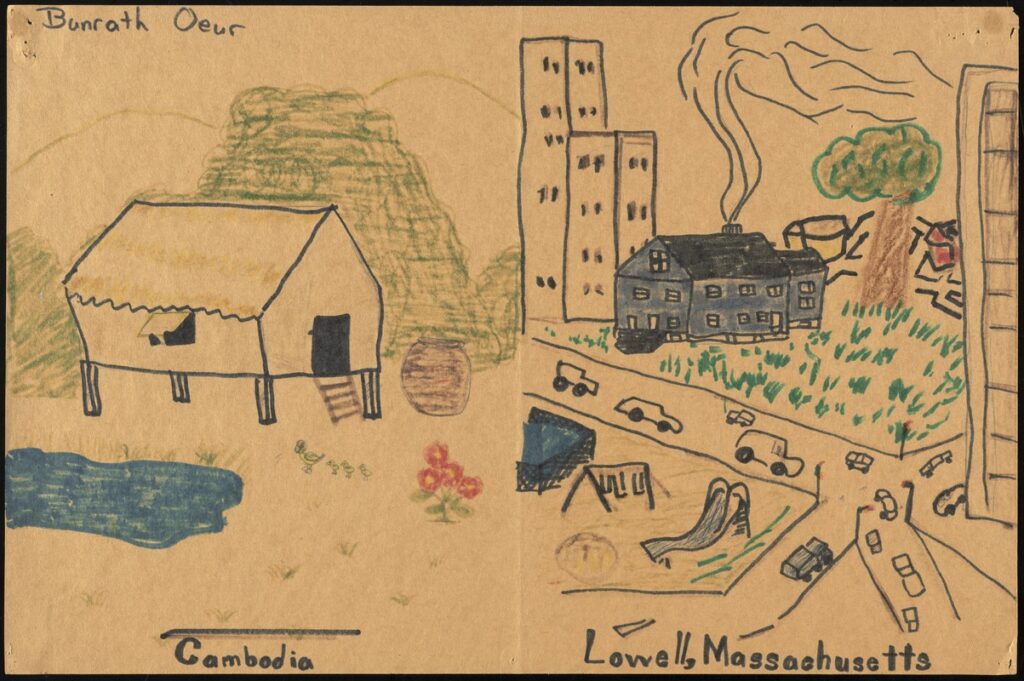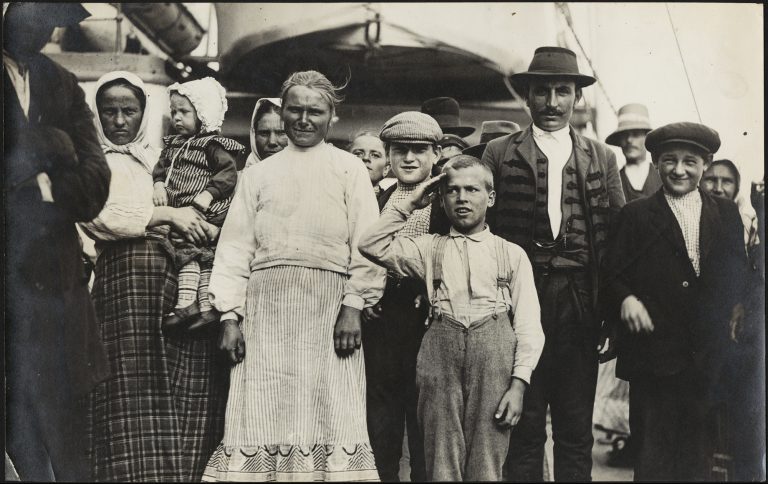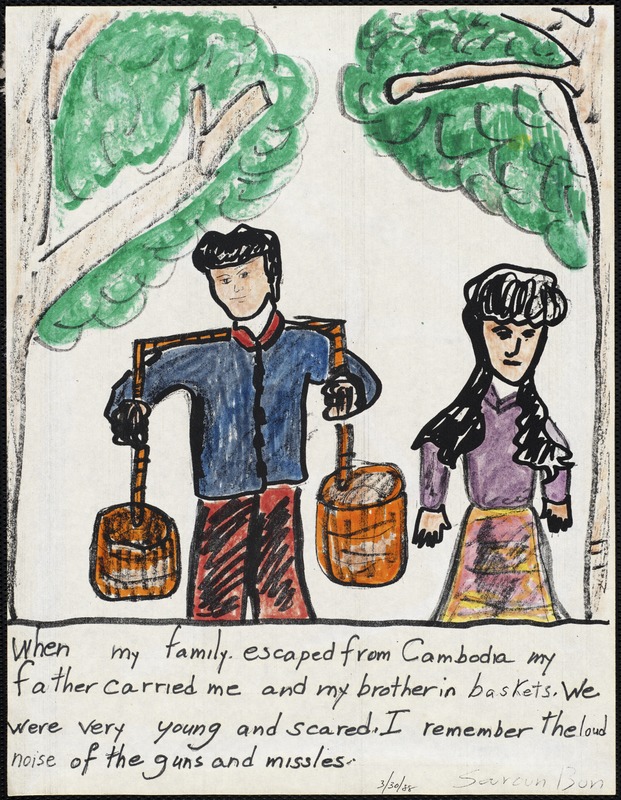by Maureen Mann, MLS Elementary Library Media Specialist Wellesley Public Schools & member of the Outreach & Education Committee
The University of Massachusetts Lowell (U-Mass Lowell) has created two timely resources for K-12 educators to enhance immigration studies. As the Biden administration works to redefine pathways to citizenship for our southern borders over the coming months, these primary source collections, created by Massachusetts students, underscore the importance of fostering student research and documenting student voices.
The Library of New England Immigration sneak previewed their platform at a final face to face Digital Commonwealth event, “The Past Goes Modern,” on January 15, 2020 at the U-Mass Lowell campus. The new digital library provides short student-friendly Ken Burns style clips telling the stories of nearly a dozen ethnic groups that immigrated to the Lowell area over the last 400 years. The project is the brainchild of Distinguished Professor of History in the College of Fine Arts, Humanities, and Social Science Professor Robert Forrant who partnered with Professor Ingrid Hess of the U-Mass Lowell Art and Design Department to secure grants to hire university students as historians, info-graphic designers, and new media journalists to produce these professional works mentored by the U-Mass faculty. Lowell K-12 educators participated in rollout testing and the result is a top-notch teaching resource that is poised to document New England Immigration stories over the next 400 years.
This year students will not visit the mills within the Lowell National Historical Parks, but thankfully this resource—years in the making–launched in the fall of 2020 despite the pandemic to offer a wide scope on the topic minus the bus fees. Even better, it comes with an invitation from the professors to encourage educators to work with students to explore the immigration stories in their students’ own families and communities. The project which both Forrant and Hess describe as a “labor of love” will link system-wide school projects featuring student investigations of community newcomers to the site “in a heartbeat.” Professor Forrant offers K-12 educator professional development for these types of initiatives. For more information contact Robert_Forrant@uml.edu.
Also featured at DC’s “The Past Goes Modern” event, was the U-Mass Libraries Southeast Asian Digital Archive. Within this collection is A City of Refugees, the Memories of Cambodia Collection, circa 1987-1991 from The George N. and Dorothea Tsapataris Collection. Lowell public school ESL teacher, Dorothea Tsapataris, and wife of long-time Lowell Public Schools Superintendent George N. Tsapataris, asked her students to create posters and artwork to help them better understand the History of Lowell Immigration, and to help Lowell better understand them.

These full color digital resources document cultural traditions and memories of Cambodian refugees recently resettled after escaping from their war-torn homeland during the 80’s. The quality of this grade 3-6 artwork is impressive, sometimes shocking. The collection provides an historical link from ESL students of the past to those students living or learning about immigration in the present.
Ms. Tsapataris’ philosophy stated within her project introduction would be as relevant in today’s classroom, “Whether one is a native born Lowellian or born elsewhere, all our ancestral roots are planted beyond the shores of the United States mainland. . . . The Future of Lowell is the children of today and their descendants.”
The collection was preserved with the foresight of former U-Mass Lowell Library Director George Hart who had a passion for digitizing primary source documents received from the community. Using Omeka platforms and Dublin Core metadata standards, the university digital services staff and specialized librarians curated these collections which feature valuable cross reference links to other primary source collections within the U-Mass Library system and the Lowell Historical Museum of History, whose archives catalog is maintained by the university library system.


